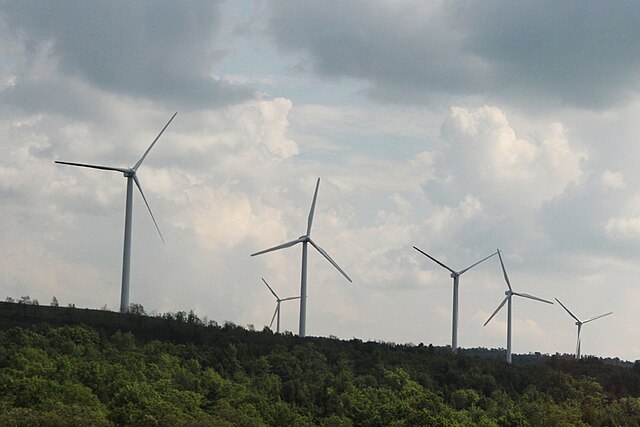Individual action on climate change
Individual action on climate change can include personal choices with regards to diet, travel, lifestyle, consumption of goods and services, family size and so on. Individuals can also get active in local and political advocacy work around climate action. People who wish to reduce their carbon footprint, can for example reduce air travel and driving cars, they can eat mainly a plant-based diet, use consumer products for longer, or have fewer children. Avoiding meat and dairy foods has been called "the single biggest way" how an individual can reduce their environmental impact. Scholars find that excessive consumption is more to blame for climate change than population increase. High consumption lifestyles have a greater environmental impact, with the richest 10% of people emitting about half the total lifestyle emissions.
A demonstrator at the People's Climate March (2017)
Battery electric bus
Respondents to a climate survey, in favour of lowering speed limits on motorways
Solar panels on roof of a home to generate energy from a renewable energy source
A carbon footprint (or greenhouse gas footprint) is a calculated value or index that makes it possible to compare the total amount of greenhouse gases that an activity, product, company or country adds to the atmosphere. Carbon footprints are usually reported in tonnes of emissions (CO2-equivalent) per unit of comparison. Such units can be for example tonnes CO2-eq per year, per kilogram of protein for consumption, per kilometer travelled, per piece of clothing and so forth. A product's carbon footprint includes the emissions for the entire life cycle. These run from the production along the supply chain to its final consumption and disposal.
Life cycle analysis: The full life cycle includes a production chain (comprising supply chains, manufacture, and transport), the energy supply chain, the use phase, and the end of life (disposal, recycle) stage.
Sign at demonstration: "Go vegan and cut your climate footprint by 50%"
Wind farms provide energy with a fairly low carbon footprint compared to fossil fuels.







